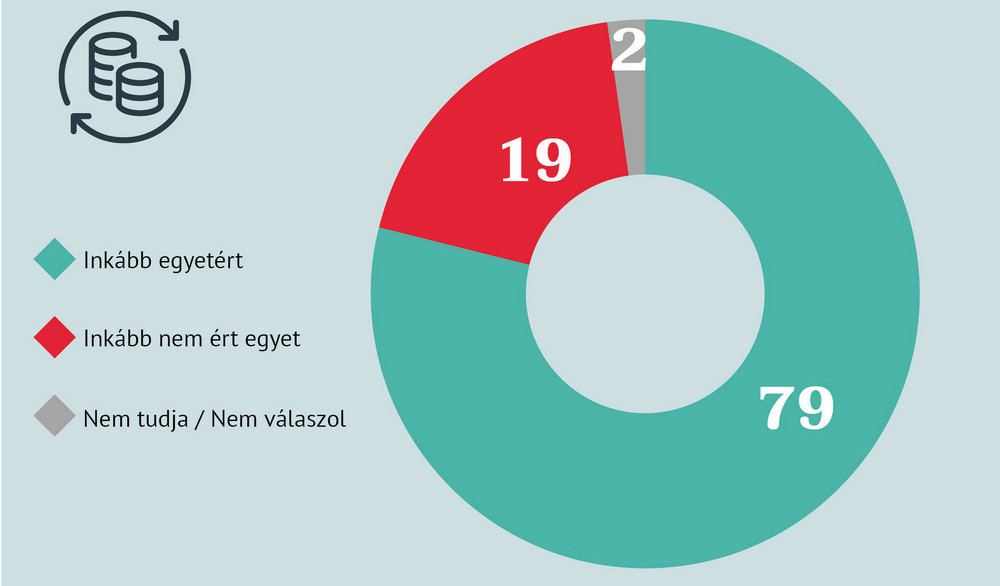79 percent of Hungarians support that the government levy a special tax on companies that have made extra profits, so that with the help of the revenues generated in this way, the overhead reduction becomes sustainable in the long term, according to the latest poll by Századvég. The survey touched upon the public's opinions regarding the reasons for the rise in prices, as well as the question of what expectations Hungarians have in relation to the burden-bearing of companies that realize profits even in a war situation.
The Russian-Ukrainian war is fueling inflation
Based on the research, it can be concluded that Hungarians realistically see that the rise in prices is inseparable from the Russian-Ukrainian war and its consequences.
Accordingly, the respondents were most concerned about the war and the war situation in general (89 percent), the energy crisis caused by the Russian-Ukrainian conflict (90 percent), US and EU sanctions and sanctions plans against Russia (79 percent), as well as speculatively, large companies and traders who unilaterally raise prices (77 percent) are held responsible for inflation.

Photo: Century
The proportion of those who believe that Brussels' energy policy and EU energy taxation play a role in the increase in inflationary pressure is 71 percent, while 67 percent of respondents believe that the policies of the United States and Joe Biden can also be held responsible for the rise in prices.
The Hungarians are in favor of taxing extra profit
The effects of the war conflict in Ukraine - among other things in the fields of economy and energy - presented our country with significant challenges. The survey points out that 84 percent of the respondents expect companies that realize extra profits in a war situation to help the Hungarian people and contribute to Hungary's defense costs, while 13 percent do not consider this necessary.
Similarly, 79 percent of Hungarians agree with the proposal that a special tax should be imposed on companies that have made extra profits through inflation and speculative price increases, and that the government should use the resulting revenues for the long-term maintenance of overhead reductions.
Source: MTI
Photo: Century












